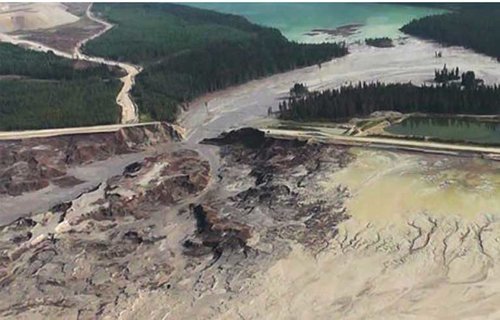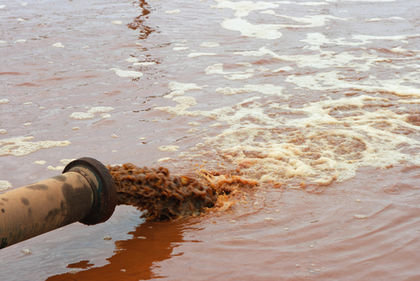onpoint
Well-known member
There are a lot of MN squareheads (I'm entitled) here. At the risk of the answers, why aren't you guys piping up about this issue? thoughts???????????????????
Follow along with the video below to see how to install our site as a web app on your home screen.
Note: This feature may not be available in some browsers.
There are a lot of MN squareheads (I'm entitled) here. At the risk of the answers, why aren't you guys piping up about this issue? thoughts???????????????????
You ever canoed for a week in the BWCA, portaging all your gear from lake to lake, catching big smallies, camping at a different isolated rocky lonesome sight each night, falling asleep to the sound of loons calling, waking up to the mist on the lake in dead silence.....
You ever canoed upstream in a beautiful River like the Kawishiwi........
You ever spent Christmas Day in a dead silent snow fall on the ice a frozen lake like Basswood, hoping to pull a nice lake trout through the hole.....
I have. Spending years in MN's Arrowhead leaves indelible memories of a truly unique piece ground- no other like it in America's lower 48.
These things are all intricately tied to the watersheds. Watersheds that this proposal has the ability to negatively impact. Study a map of the country, note the drainage.
Yeah, the WAPO has the left wing slant to things. Twin Metals info release(s) gives their slant.
If you grew up in the Arrowhead of MN, as I did, you may have just a genuine concern for a really cool place.
Yeah, I drive a truck full of copper wiring. I guess I just think it's a little more complex than that.......
I have spent countless days and nights in the "canadian sheild" wilderness over the last 40+ years, have hunting land w/ cabin inside superior forest and multigenerational cabin within 30 minutes of Ely so I have a lot of context and more than a little skin in this game. These issues are more complex than most like to accept. Of course I want theses lands/waters preserved, but I also believe the men and women of Northern Minnesota deserve living wage jobs (vs. crappy minimum wage seasonal jobs in the recreation industry). All balanced, I am willing to believe that mining in 2025 is more technically sound than mining in 1945 and that we can have both great wilderness and an economic engine (mining). I understand many on this forum will disagree. The locals are no different, a strong split between pro and anti is evident when you spend time at the coffee shop or bar. I hope that all the out of state politicians, left coast advocates and twin cities once a decade visitors stay out of this, as the vitriol they are bringing to this debate is at risk of creating permanent divisions in an already struggling community.
That's such a lame and ridiculous argument...because we use copper, is no defense to put areas like the BW or Bristol bay at risk.
Low information statement...best case.
The problem some people have is that they look at this one dimensionally and don't consider the impact to to the local economy. Which has been in the shitter foe years.
There are a lot of MN squareheads (I'm entitled) here. At the risk of the answers, why aren't you guys piping up about this issue? thoughts???????????????????
The problem some people have is that they look at this one dimensionally and don't consider the impact to to the local economy. Which has been in the shitter foe years.
Looks to me like the US could stop exporting scrap, for a start.
.
The locals are no different, a strong split between pro and anti is evident when you spend time at the coffee shop or bar. I hope that all the out of state politicians, left coast advocates and twin cities once a decade visitors stay out of this, as the vitriol they are bringing to this debate is at risk of creating permanent divisions in an already struggling community.
I am one of those former squareheads who has fished, camped, canoed, etc in the Rainy River Headwaters Watershed that is the BWCA. I spent even more time in the watershed just downstream, the Rainy River-Rainy Lake Watershed.
I've had company over the Holidays, so piping up has not really been an option.
I couldn't agree more about the one-dimension perspective. On both sides; more often by the side wanting to have lower regulatory standards and yelling at the other side for being one-dimensional. As much as those living far away from the area don't look at the impacts the same way a local person does, those supporting the mine and its possible impacts refuse to look at the other businesses and property values that could be affected. That is pretty much an expected outcome in these issues. I usually laugh when one side or the other make accusation of the opposition being one-dimensional.
I left that country 30 years ago, though I still go back almost every year. Yes, the economy is in the chitter; has been for at least a decade before I left.
If there has been one part of the economy that has some level of stability, it is the tourism and fishing-based economy. That brings a lot of money in from outside the area. It is not cyclical to market prices of commodities, yet rather cyclical to the same tones of the national and global economy. That tourism economy has kept property values at stable or increasing levels while providing income to local communities. Nobody is "getting rich" in that tourism economy, but people in those businesses consistently make a decent living in a sustainable manner that does not impair property values.
Let's say the mine is approved by the regulatory agencies, goes through, and creates the problems that many are concerned about. Will it be another LTV lawsuit/bankruptcy/"stick the state with the tab" problem as happened on Birch Lake near Babbit in the 1970s; the place much of this proposed activity is planned for? I hope not. But, the track record of mining, the long-term track record of the companies (some foreign companies) who have come/gone/bankrupted on the Iron Range are too long to list.
If this goes according to the best laid plans of the mine company, great. Everyone is happy.
If it goes in the crapper, what about the wildlife, fish, water quality, local property values? What about the tourist-based businesses such as resorts, outfitters, guides, etc in the local area and in the downstream watersheds that include not just the great fishing of the BWCA, but Lake Kabetogama, Rainy Lake, etc.?
A question for most of these issues, here, Bristol Bay, etc. - Is the company, and the state/federal agencies that impose the bonding and insurance rules, ready to bond at a high enough level to cover the possible economic impacts to all of those businesses in the two main watersheds affected, do remediation, and indemnify for possible damage to local property values? That seems to be some possible path forward.
Require 100% bonding, not just for reclamation, but for damage to other businesses and property values. Must be bonded by an insurance company that can withstand a possible claim on the bond for the crazy amount of potential liability. Then, the citizens of MN, and the US for that matter, are not on the hook for another Superfund sight like is 90 miles down the road from where I live in Montana. The company and the bonding company are on the hook for the financial impacts.
Here is why that is a worthwhile discussion, at least in my mind.
If the risks are very low, as the company suggests, then the bonding costs will reflect that and be a very small part of the cost of production. Pretty simple. Everyone is covered, ore gets produced, minerals go to market, and the local economy benefits without impact to the existing businesses/property values.
If the risks are high, the risk experts will reflect that high risk in the costs to bond. The company will complain that they cannot afford such a high cost of bonding and maintain any level of profitability. Well, if the experts in risk have determined there is extreme risk, if there are potentially huge financial impacts, if the supposed technology improvements are still not enough to mitigate the potential risks, then who should we listen to; the company and their "experts" or the risk management experts who have determined that this represents a tremendous risk and has priced their bonding accordingly.
Using that model is unfortunately where the politics comes in. Those imposing risks try to socialize the costs and impacts, while privatizing the profits. They do that by currying favor from politicians who don't give a chit because they stand to benefit or because they stand to have no impacts if things go sour. If the risks are low and the bonding is a pittance because the risks truly are low the mine should be there and contribute to the local economy. If the risks are high and bonding makes the operation financially impossible, then the mine shouldn't be there.
My gut tells me that given the problems that have occurred there decades ago and what has happened in other mine operations that have stuck taxpayers with remediation costs (and damaged local businesses and property values), that the bonding costs would be very high. I suspect full bonding would add a cost to the ore production that would make it economically unfeasible and these ores could be found in other locations at lower cost/risk dynamics.
I suspect that unfavorable cost/risk dynamic is why the mining company is spending so much time/money/effort on the political strategy. If it requires political favor (read risk subsidy) to make this work, shame on us if it is allowed; fifty years from now another train wreck will land on the lap of future generations so the current generation could have lower-priced commodities and a corporation and its shareholders could make some profits by conning politicians into letting the citizens pick up the true costs of doing business.
When companies use the political route to try tilt the cost/risk dynamic to their favor, these kind of spats are usually the norm, rather than the exception. An adult life of watching these issues unfold, very seldom to the benefit of the public/resource/wildlife/air/water and most often to the benefit of the political donor/corporation, my skepticism meter has enough experience to make me very cautious on most of these debates. I wish it was different, but such is the lesson history has taught us.
And yes, even with that skepticism, I use copper, I use energy, I have impacts. And I fully expect to pay a market price that reflects the costs of production that would cover the impacts my needs and demands for resources impose. I don't want to hand off more problems to the next generations by demanding subsidized natural resources, as my generation is already sticking them with hundreds of trillions of unfunded promises.


Honest question. Are there any metals mines that have operated successfully then closed and been remediated properly so that the end result is that the mining company made money and still cleaned up after themselves?
Stand by for internet search links ad infinitum.Unless of course BHR knows of a few hundred.........